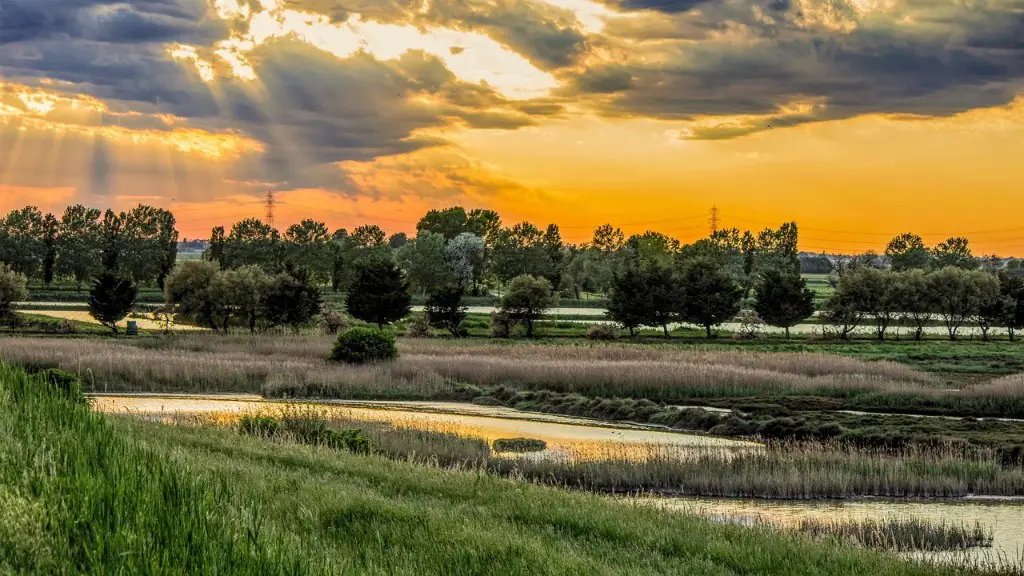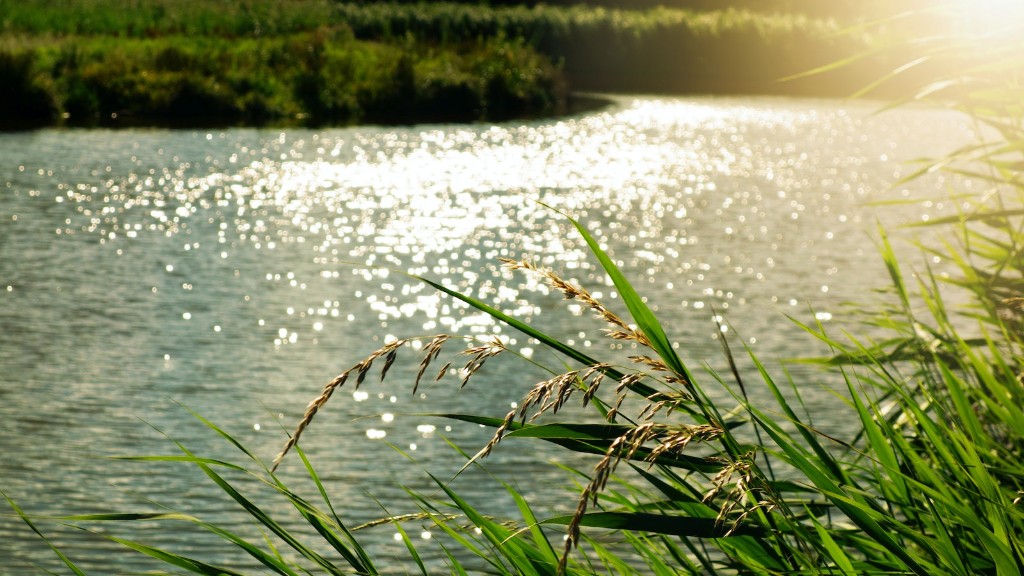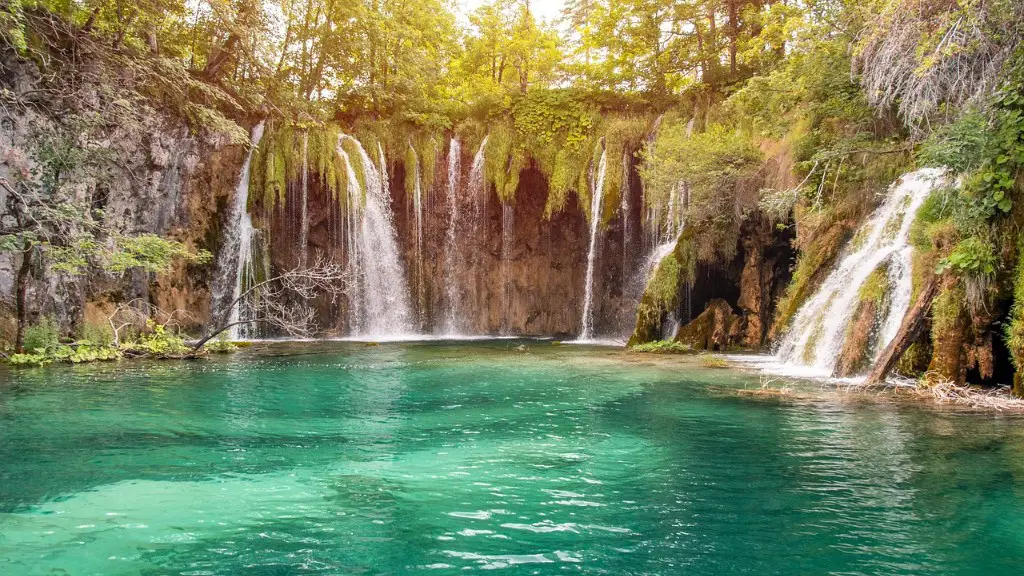Environmental Impact
The Mississippi River is an essential source of life in the region and beyond. It is an important factor in the economy and culture of the region. In addition to its economic and cultural role, the river is also an important ecosystem for wildlife and fish, providing a variety of habitat for species to thrive. Because of its size and magnitude, it is home to many species that are not found elsewhere in the world. In its natural state, it can provide a great range of benefits to both nature and society. The river also provides a critical buffer for the environment from both natural and man-made disasters, such as hurricanes and floods.
Yet, despite the importance of the river, its environment has also suffered from a variety of human activities. Pollution from industry, agriculture and urban runoff has affected the river’s water quality, which negatively impacts aquatic life. In addition, overfishing, dredging and other activities have harmed the ecosystem and led to the decline of fish and wildlife populations. The Army Corps of Engineers’ attempts to reduce the size of the river and the impacts of man-made navigation and flood control works have also further degraded its habitat.
Economic Impact
The Mississippi River’s economic value is vast and has been part of the region’s economic success since the early days of American exploration. Numerous industries and activities depend on the river, such as commercial navigation, agriculture, recreation, and tourism. Approximately 500 million tons of cargo are transported on the river each year, with most of it coming from coal, iron ore, sand, gravel, and fuel products. The river is also important for electricity production; hydropower is generated from 13 hydroelectric plants situated along the river.
In addition to its transportation of goods, the Mississippi River is also an important provider of natural resources, such as fish, aquatic plants, and drinking water, for many downstream states. It is a major waterway for both inland and international shipping and many businesses use it to move goods from around the globe. The river also harbors enormous cultural, archaeological and historical value.
Political Impact
The Mississippi River has played an important role in American politics. The river is a major source of drinking water for fifteen states and two nations and is a critical trade route. It has historically aided the U.S. in building bridges with other nations and has played a pivotal part in the Civil War. It has shaped American history in many ways, including the Louisiana Purchase and the industry-boom of the mid-1800s. Attempts by states to control the course of the river have been met with strong resistance from citizens, environmentalists, and other states.
The river has been extensively discussed in the current political debate, with some calling for a reduction in industrial pollutants and the restoration of the river’s ecosystem. The Corps of Engineers has a controversial footprint on the river, with past efforts to re-channel the river and build dams creating long-term problems. While on the left it has been proposed to reduce the Corps of Engineers’ authority, the right has argued for a review of natural resource policies that could allow for further economic development but at a cost to the environment.
Social Impact
The Mississippi River has been an essential part of the region’s culture and identity. The river has not only affected the region’s environment and economy but also served as a source of inspiration to the region’s various peoples and communities. The Mardi Gras celebration, a major tourist attraction in the region, began in New Orleans at the mouth of the Mississippi River and continues to be a popular celebration today. Numerous tales, stories, and folk songs of the river have been passed down over the generations and play an important cultural role in the region.
The river has greatly influenced the genre of blues and jazz, as many of the early influential figures in those genres traveled and performed along and around the Mississippi River. In addition, the river has become a place for protest and social movements, such as the civil rights marches for African Americans.
Spiritual Impact
The Mississippi River has long held spiritual significance for many, playing an important role in Native American spirituality as well as in Christianity. The Mississippian culture, an ancient Native American civilization, believed the river to be a spirit, one that showed both strength and fury. The river was also important to many of the early European settlers, who viewed it as a source of power and spiritual healing.
Today, the river remains a source of spirituality to the region’s various cultures, who view the river as a source of life and identity. It has been a gathering place for prayer, meditation, and celebrations among many faiths. It has been the site of spiritual and cultural centers for generations.
Civilizational Impact
The Mississippi River has played a major role in the development of the United States. From its earliest days, the river served as an important route for the exploration and expansion of the nation. It aided in transporting goods and people across the region and was a gateway for the settlement of the West. It also served as an important transport point as the United States fought in the two world wars.
The Mississippi River was essential in the development of infrastructure in the area, providing irrigation and water to many states in the Midwest, which led to the growth of many industries, such as agriculture and the production of goods. The river also helped shape the region’s culture, with its cities and towns, festivals and music, and literary traditions. Many of the nation’s famed authors and poets, such as Mark Twain and William Faulkner, wrote and drew from the river’s symbolism.
Impact on Wildlife
The Mississippi River is an important source of habitat for many species of wildlife, some of which are unique to the region or uncommon elsewhere. The river and its tributaries provide an array of habitats for fish, turtles, mammals, and birds, including several endangered species. The river also helps sustain many rare plants, such as the American Lotus, a large aquatic plant that is a significant food source for waterfowl.
The river’s complex habitats have largely remained untouched due to its remote nature, which has resulted in its high biodiversity. Yet, this biodiversity is being threatened by industrial and agricultural pollutants, overfishing and dredging, and climate change. Conservation efforts must be undertaken to protect these habitats and the species they support.
Management and Restoration
The Mississippi River has seen its fair share of challenges, but effective management and restoration measures can help ensure its sustainability in the future. It’s imperative to reduce the sources of pollution and restore habitats. The Corps of Engineers must work to assess the impacts of its activities on the river and implement mitigation measures. In addition to government efforts, citizens can also help by cleaning up trash and participating in river cleanups.
States and communities can also work together to support policies and projects that promote the long-term health of the Mississippi. A coordinated effort to reduce the sources of pollution and make the river clean is needed to restore the river’s habitats and the species that rely on them. Local and regional efforts to promote eco-tourism and establish public education campaigns can also help spread awareness and promote stewardship of the river.
Valuing the Mississippi River
The Mississippi River has long provided benefits to both nature and people. Its economic, political, social and spiritual value is irrefutable. Despite the problems facing the river, its importance remains unquestioned. Its sustainability and future health depends on our willingness to make the necessary changes to ensure its safety and vitality. Its appreciation and value should be cultivated through conservation and collaboration. By understanding and respecting its complexity, we can ensure that the river remains a vital source of life and joy in the region and beyond.


